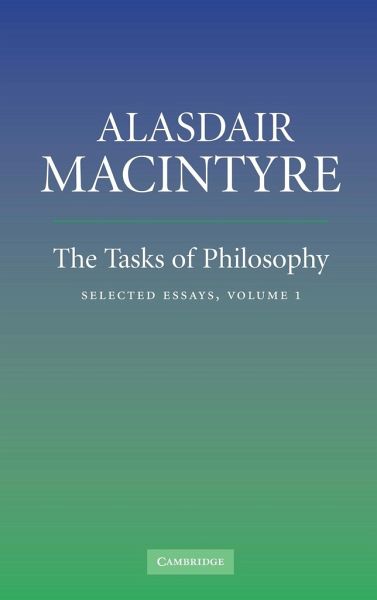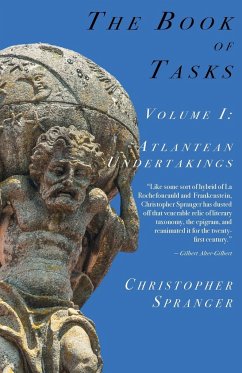
The Tasks of Philosophy, Volume 1
Selected Essays
Versandkostenfrei!
Versandfertig in 1-2 Wochen
87,99 €
inkl. MwSt.
Weitere Ausgaben:

PAYBACK Punkte
44 °P sammeln!
How should we respond when some of our basic beliefs are put into question? What makes a human body distinctively human? Why is truth an important good? These are among the questions explored in this collection of essays by Alasdair MacIntyre, one of the most creative and influential philosophers working today. These classic essays will appeal to a wide range of readers across philosophy and especially in moral philosophy, political philosophy, and theology.














